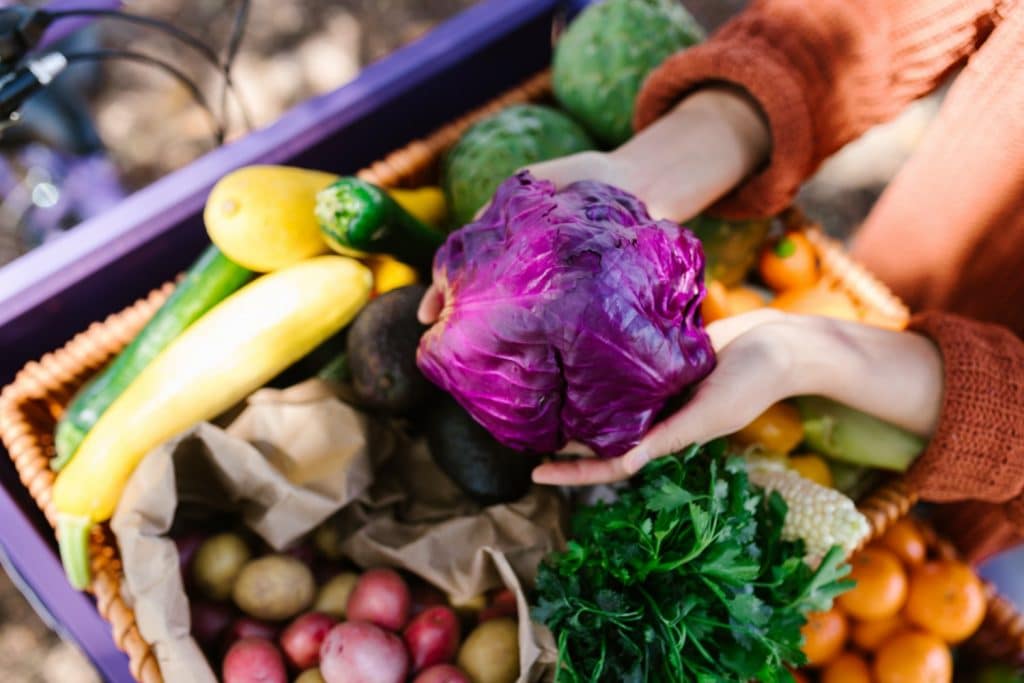Since November 2021, the topic of Slow Food has been on everyone’s lips thanks to the Slow Food Causeway campaign which launched in November 2021.
For the past four months, both producers and businesses alike have been busy putting on an exciting range of events, dining experiences, tours and special menus celebrating the unique Slow Food and drink culture of the Causeway Coast and helping spread the grassroots movement around Northern Ireland to accomplish a much more delicious and sustainable future.
1. Check out food deliveries in your local area
Slow Food can start at home. With many Taste Causeway and Slow Food Causeway approved businesses offering a delivery service, it has never been easier to source high quality, local produce straight to the dinner plates of homes across the province.
Slow Food Northern Ireland Director Paula McIntyre was delighted to discover that during the Coronavirus lockdowns in 2020, a lot of the popular eateries along the North Coast were still delivering their goods.
“A lot of our Taste Causeway people were delivering. I got a delivery of Lacada Ale, a delivery from Corndale Farm, Warke’s Deli, Ursa Minor bread and Glenballyeamon Eggs” she said.
2. Be open to trying new things
One of the main ethos of Slow Food is being open to trying new produce and uncovering new food favourites, particularly from your local area.
Paula recommends that when eating out or buying produce, you think carefully and consider the origin of the items.
The popular fish restaurant in Portstewart, Native Seafood and Scran, has been challenging traditional buying behaviour for fish and seafood, selling and cooking only locally caught fish.
“Native Seafood and Scran opened just before the pandemic and have sold so much native seafood since then. Before this, people were buying salmon, which is not slow food by any stretch of the imagination.” Paula said.
3. Ask questions
Embracing the Slow Food movement also requires you to be more curious and have the confidence to challenge producers and businesses in your local area.
Paula warns to be mindful when reading menus advertising ‘local sea bass’, “Restaurants will put on menus ‘local sea bass’ but in our waters, it’s illegal to fish commercially so you need to call them out.”
When you directly engage with producers or restaurant staff, you can safely enjoy the food knowing that the beef is from down the road, the fish has come off the boat around the corner which plays a big difference to the experience of the food.
“If you’re looking at the menu and it doesn’t say where the steaks come from, just ask.”
4. Visit your local farmers market
The Slow Food movement emphasises buying from vendors based in your community or area instead of solely relying on big chain supermarkets.
It’s a good habit to check the labels of your food to confirm it was made by a local producer or grown by a local farmer.
Contact farmers in your area and buy from them directly so you have access to fresh, local food. Get to know your local farmers so you know the history of your food and how it is grown.
Paula believes that buying local produce can help you rediscover new ways of cooking, “People can get back into rediscovering veg like cabbage and different varieties of potato.”
“The possibilities are endless with what you can do with them.”
5. Cook at home from scratch
Following the Slow Food movement involves making an effort to cook your own meals at home on a daily basis.
Whilst this can be overwhelming if you live a busy lifestyle, you can try to create a meal plan and buy local ingredients at the beginning of the week so you have them already in your cupboards.
Every little helps and by preparing meals at home with fresh ingredients, you have the power to make the Slow Food choice and cook with as many ingredients as you can where you know exactly where it comes from.
6. Make meals a social event with others
The Slow Food Movement focuses on slowing down when it comes to eating and sharing meals with others.
So by getting in the habit of having weekly meals with your family or friends, where you all sit down at the table, connect and make conversation with another.
Taste Causeway is delivering Slow Food Causeway with funding from Tourism NI in partnership with Causeway Coast and Glens Borough Council.
For more information go to tastecauseway.com/slow-food-
Issued by Excalibur Press on behalf of Taste Causeway.
For more information, please contact Tina Calder or Chloe Keys, Excalibur Press, 07305354209, [email protected], [email protected].
Do you need help with your publicity, PR or creating content, strategies and plans for your business?
At Excalibur Press we have a team of publicists as well as over 12 content creators and copywriting in a variety of specialisms writing blogs, product descriptions, landing pages, website content, video, photography and more for clients on a daily basis. Maybe this is just one thing we could help you with – even just to get you started.
If you would like to speak to a publicist or content creator or would like more information about our rates and process just call 07305354209 or email [email protected]
Find out more about Excalibur Press at https://excaliburpress.co.uk

